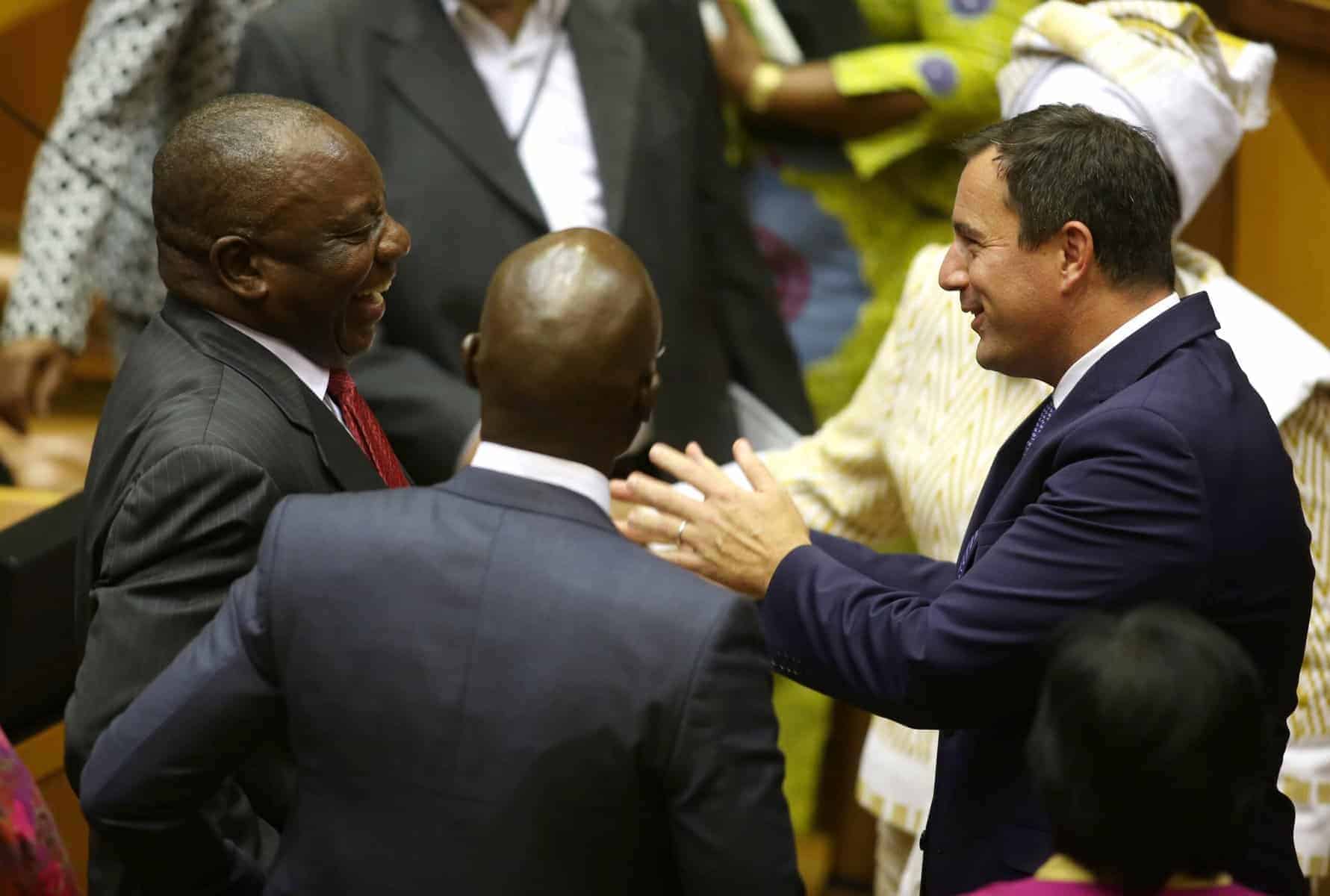This is the moment to put the national interest before party calculations and insist that Ramaphosa appear before commission and parliamentary committee

In the mid-1800s, the tightrope walker, Charles Blondin, piggybacked his manager across the Niagara Gorge before an awestruck crowd. It was a feat no-one tried to repeat.
Well, not until President Cyril Ramaphosa and DA leader John Steenhuisen attempted its political equivalent after the 2024 general election – a joined-at-the-hip coalition above a seething cauldron of electoral disdain.
The two men’s fates are now interwoven, but with the main beneficiary of this brothers-in-arms balancing act being Ramaphosa.
The first lesson was when Ramaphosa fired Andrew Whitfield, the DA deputy minister, over an unauthorised trip to the US. Steenhuisen huffed and puffed, then sulkily accepted the decision.
The second lesson came when Emma Powell, the DA’s international relations spokesperson, resigned her portfolio, citing months of government intimidation and surveillance in response to her foreign-policy dissent.
Meanwhile, the price of Ramaphosa’s foreign-policy missteps continues to mount. Pretoria’s steadfast sympathy for Iran and Hamas has soured relations with Washington and hobbled his G20 chairmanship, which limps to an unhappy close next month.
But it’s on Ramaphosa’s wheeling and dealing where the DA’s silence is most damaging to our democracy.
ALSO READ: South Africa’s justice system is in trouble, Mr President
One clear marker is the long-delayed court appearance of those charged in the Phala Phala farm case. Whatever their legal merits, Ramaphosa’s shifting explanations for a sofa stuffed with undeclared dollars have aged badly in the court of public reason.
When the Section 89 panel found prima facie grounds for an impeachment inquiry – and the ANC used its numbers to smother it – the DA was outraged. Yet the party did not join the EFF/African Transformation Movement’s Constitutional Court bid to revive impeachment, nor did it use its post-election leverage to reopen the process in parliament.
Instead, it shunted the matter to a “review” by the National Prosecuting Authority.
A similar pattern is now playing out before the Madlanga commission and an ad hoc parliamentary committee on allegations of police corruption.
First came a throwaway statement before Madlanga by Lieutenant-General Nhlanhla Mkhwanazi that Ramaphosa had pressured the police on how they should run a KwaZulu-Natal investigation involving Richards Bay Minerals.
ALSO READ: What is playing out is Ramaphosa’s tragic failure of constitutional leadership
Then came suspended police minister Senzo Mchunu’s testimony, which produced a blizzard of contradictions about what Ramaphosa knew, when he knew it and whether he overtly, or tacitly, agreed to it.
Mchunu first told parliament he had briefed Ramaphosa and that “the president agreed” to disbanding the KZN Political Killings Task Team. Later, he said Ramaphosa was not consulted. Under parliamentary questioning last week, he said there was no prior discussion and that he briefed the president only after the decision was made.
Ramaphosa’s response is telling. He says he will not address the claims while the inquiry runs and will speak only after the commission reports.
This neatly flips the logic of the inquiry on its head. Accountability is not a presidential courtesy to be dispensed by Ramaphosa at his leisure. The point is to test the facts now in the face of the brutally probing and potentially damaging questions that will be asked, especially in the ad hoc hearing, by his parliamentary foes.
Coalitions demand restraint from both parties, but the DA has drifted from pragmatism to deference. This is the moment to put the national interest before party calculations and insist Ramaphosa appear before the commission and the parliamentary committee.
Support Local Journalism
Add The Citizen as a Preferred Source on Google and follow us on Google News to see more of our trusted reporting in Google News and Top Stories.








